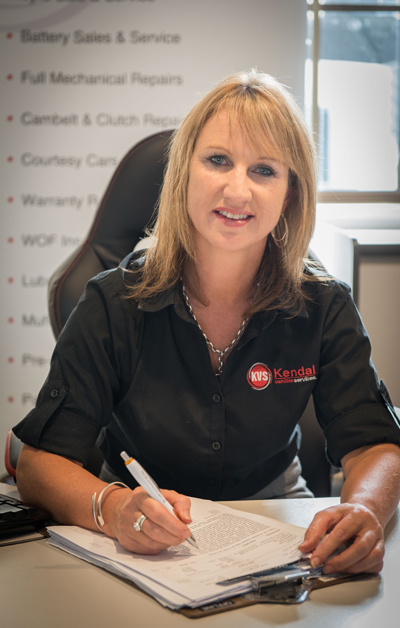Mixing charity and business
Hannah Blake finds three organisations that successfully demonstrate the power of social conscience in business and social enterprise in charities.
Hannah Blake finds three organisations that successfully demonstrate the power of social conscience in business and social enterprise in charities.
The tide is turning. Once upon a time, businesses were solely focused on making money not making a difference. Obviously the emphasis is still about the bottom line and profit margins, but these days a new trend is appearing – social consciousness.
This trend also matches what is happening in the world of charities, where gone are the days when charities just sit back and wait for money to be handed to them via donations. While it’s still an important part of fundraising for charities big and small, statistics and stories from around the country tell a different tale – many charities are finding ways to raise their own funds through enterprise, and even better, it’s working.
Whether it’s a donation at the supermarket checkout, or a hefty donation from a large corporate, business and charity are mixing together more closely than they have in many years. Some say charities are now running to stricter business models. But why?
A social conscience
Since its inception in 2008, the Harcourts Foundation’s New Zealand arm has supported 593 charities through grants.
Internationally, through its locations in New Zealand, Australia, Fiji, South Africa and the US, the foundation has donated over $3.9 million.
The funds do not come from the corporate entities of the business itself, but from its salespeople, who voluntarily donate funds each time a home is sold.
Harcourts Foundation Ambassador Emma Revell says each real estate agent and franchise owner can opt in to donating a percentage of each commission they make. Funds from each community are distributed back into that same community.
Each quarter, applications are sought, checked through and selected from. It’s not a highly visible sponsorship or backed by promises of great PR or promotion, simply local business people supporting local needs.
“It is all about providing support that helps to grow and enrich our community,” says Emma.
Meanwhile in Northland, one company director is making his mark with local charities and organisations.
Jennian Homes Northland director Brett Yakas has a busy event calendar and it all centres around working with local and national charities to do his part. Nationally the building company supports the Heart Foundation of New Zealand and has done so for many years. Each year franchise holders around the country hold a Mother’s Day Fun Run Walk event to raise funds and awareness for the Foundation’s Go Red for Women programme.
His work continues from there, with his chosen list of charities and organisations including a number of local sporting organisations that needed help and Cystic Fibrosis Northland, as well as holding other events for the Heart Foundation.
It’s not always about money either. For the past few years, his building crew have constructed mini workbenches which he donates to local child-care centres and kindergartens. Last year, he spread some festive cheer by delivering Christmas trees and decorations to those who could not afford them. Why does he do it?
“I think we have an obligation that when we are in business we should support the community that supports us, and not always in the hope of gaining new customers.
“The Christmas trees we gave out with the help of the Salvation Army, that is not my target market, that is not going to make my phone ring with new home enquiries, but for me it’s a feel-good factor,” Brett says.
“It is up to the individual in business how they choose to operate; that stands for many aspects of business. I choose to support my community, to support these charitable organisations that need it. If they weren’t part of our community we’d all be a lot worse off.”
The Harcourts Foundation and Jennian Homes are just two examples of how big and small businesses in New Zealand are working hard to better their communities – which in a nutshell, is what many of the charities themselves are doing with their work.
Social enterprise
Rotorua’s SPCA is a prime example of a charitable organisation not relying solely on the kindness of its donors to ensure the doors stay open. As a charity that receives no government funding, each month is about raising the funds to keep everything ticking along, says manager Eve Johnson.
“We aren’t a cottage industry anymore, we need at minimum $500,000 a year to run our operations and that has to come from somewhere.
“We are constantly changing, constantly evolving, just to break even and maintain a small buffer in case there is a natural disaster or an emergency of sorts. It’s on us to find ways to make that money.”
Johnson says they’re very thankful for donors but it’s hard to always have your hand out. So the Rotorua SPCA thought outside the square to create a smart social enterprise that complements the existing care model.
The charity created a dog grooming boutique on-site as well as a specialised pet crematorium aptly named Peaceful Pets – due to open mid-year. All proceeds from both operations go towards the operating costs of the organisation.
“Change has to happen,” says Eve. “We can keep putting our hands out and hope we’ll get a different result, or we can make it happen. I have seen a huge growth in social enterprise in charities, including op shops and the like, and that is what will help to future-proof us.”
Fundraising Institute of New Zealand CEO James Austin says business-savvy charities are more than just a trend, but a necessity. Charitable organisations run by strong business-minded leaders will bring more success and more funds, enabling them to carry out their work more successfully, he says.
And what does he think of business getting in behind charities big and small?
“I commend them,” says James. “The area has grown recently but not as fast as we would like. A lot of businesses are seeing supporting charities as a way to utilise their marketing budget and get good PR back from it. Over the years there’ve been great examples of this in big business, the ANZ and its connection with the Cancer Society and Daffodil Day is one. “That one day costs the bank a lot of money, but they get great PR out it,” he says.
“It would be great to see more of it. It’s not the fastest growing sector for us, but we wish it was.”




